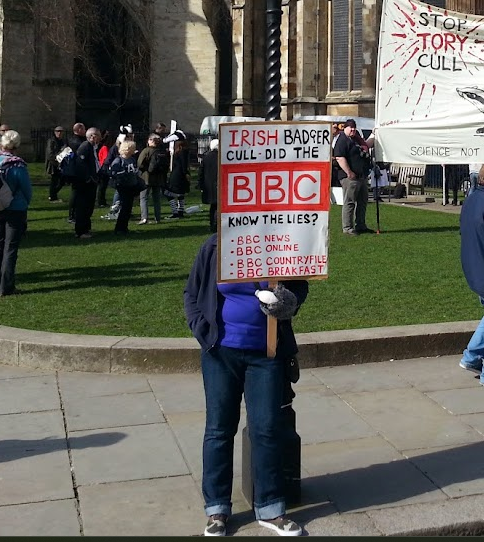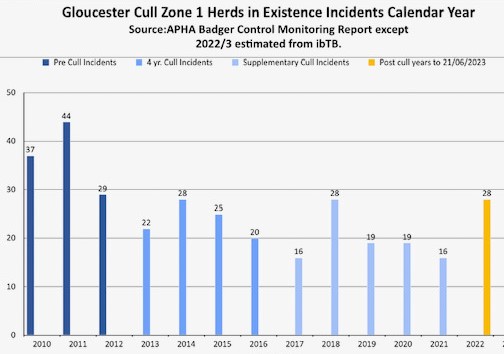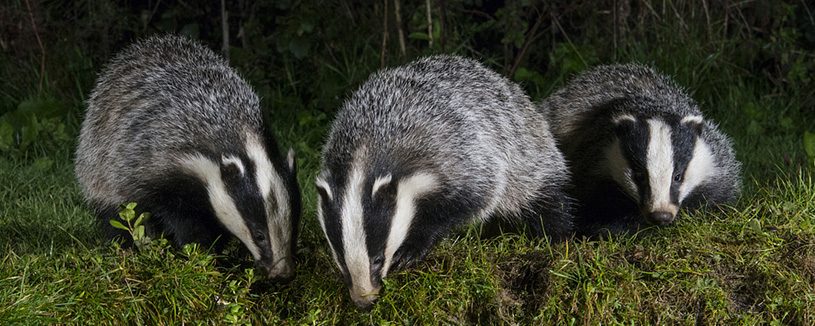10 years on and the BBC repeats acknowledged errors, misleading the public on badger culling

On 13th May 2013, the BBC posted an article entitled “How did the Irish badger cull play out?”.
On 1st June 2013, this report was produced on the impact of the badger cull in Ireland.
Both of these pieces were by BBC Journalist David Gregory-Kumar (DGK). Both these stories, and others beside support the controversial government view that badgers play a significant role in bovine TB control in cattle. Complaints to the BBC by ecologist Tom Langton eventually led to the following BBC ruling:
Given that both the statistics and scientific studies about the link between badger culling and bovine TB levels were inconclusive, the Committee examined whether the article had used clear and precise language to make this apparent to the audience. In doing so, it observed that the badger cull had become a highly divisive issue with those for and against the cull using the findings of different trials to bolster their respective causes and so it was essential that the BBC provided the greatest clarity possible on the subject.
In this context, the Committee believed that the language used in the article had not been sufficiently precise as it suggested that the badger cull might be a factor in helping control the disease when this was scientifically unproven. It considered that, while the data did show a decline in the number of cattle infected with TB in Ireland, there was no conclusive evidence to show that the badger cull had been categorically responsible for any of this decline and so it was inaccurate to say that, along with other measures, it can help control the disease.
Exactly the same error was repeated by the same journalist in a piece on BBC’s Farming Today on July 4th 2023, 10 years later, this time regarding the English culls. DGK plays a clip in which farmer James Griffiths says “badger culling has undoubtedly made a difference, no one can deny it” DGK follows this by saying “the latest data seems to support this.” The latest data does not support this. The latest data shows bTB falling generally because of cattle measures but the role of badger culling, if any, is not known. Why is DGK doing this we wonder?
DGK forgot to mention that there were more bTB breakdowns in Gloucetreshire pilot 1 area in 2022 than in 2013 when badger culling began.

And again, in ‘Has a decade of badger culling worked?’ published on the same day, the bias continues.
There is no mention of the peer-reviewed paper published last year by Vet Record, “Analysis of the impact of badger culling on bovine tuberculosis in cattle in the high-risk area of England, 2009–2020” by Tom Langton, Mark W. Jones, and Iain McGill. This examination of government data obtained over a wide area and a long time period failed to identify a meaningful effect of badger culling on bTB in English cattle herds.
Defra has failed to publish any analysis that shows that badger culling has produced any disease benefits since its much caveated publication in 2017, which was based on limited data over a limited period of time. DGK says that to show that badger culling is working you would need to “compare areas with a cull to those without and we can’t do that because the culls are now everywhere.” This is not the case. Defra holds all the data for all farms, culled and unculled, and it would be a relatively simple job to extract data from culled farms and compare them with unculled farms using a range of available techniques. They may have already done this. If not why not?
Overall, the bTB disease figures from Wales (where there is virtually no culling) and England (where 210,555+ badgers have been culled) have been very closely aligned. This is, perhaps, the best evidence that badger culling plays no role in bTB control.
Incidentally, Jeff Sim at Staffs Wildlife Trust who was interviewed said that he was vaccinating badgers to reduce bTB in cattle. But in fact such a relationship is not known and is purely speculative. Wales gave up on vaccinating badgers a long time ago.
Finally DGK’s idea that badger cull benefit lasts 4 years is not solid science. The confidence intervals on that old data indicate nothing scientifically significant. The late statistician David Cox who was involved with the RBCT is reported to have said at a conference later that he wished they had presented it as trends rather than as significant as the RBCT confidence intervals were also mostly very large.
The real story is that 6-monthly cattle testing in the High Risk and Edge Area are now starting to work.

